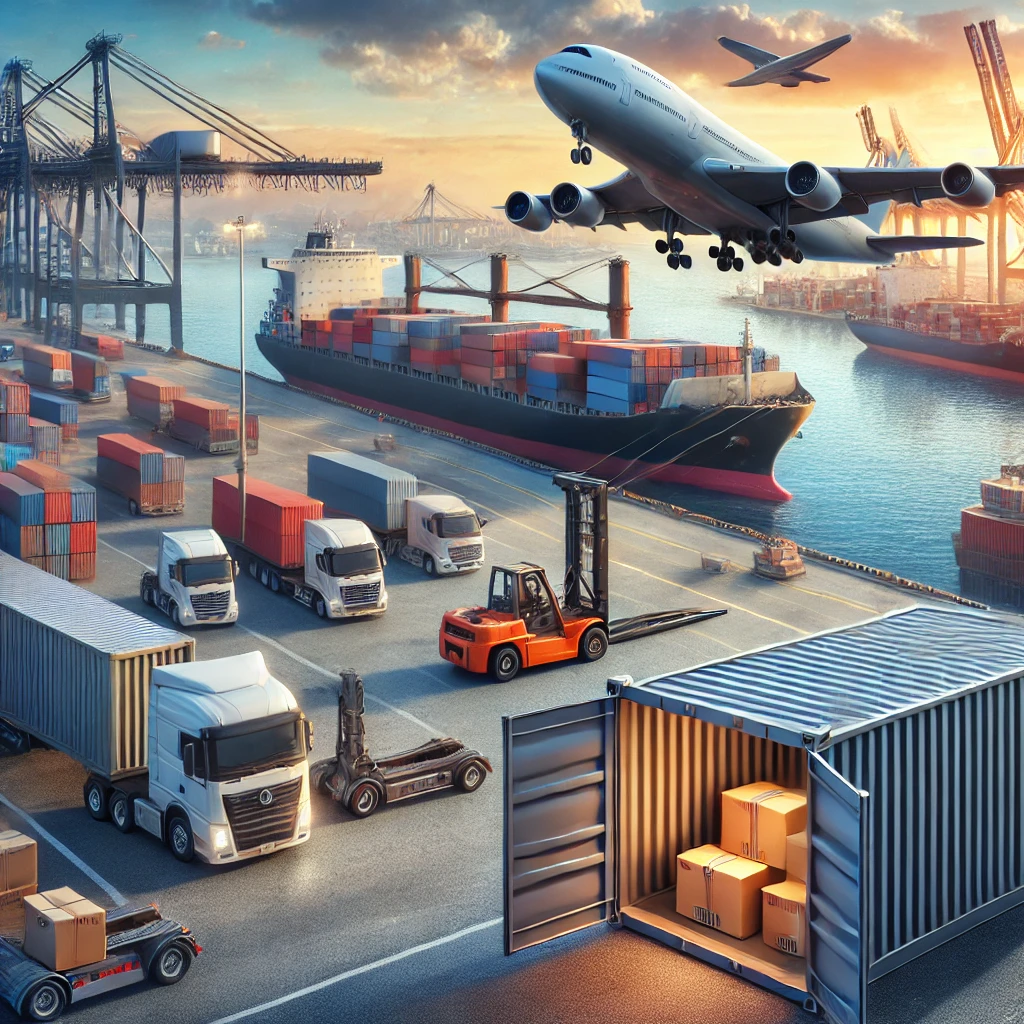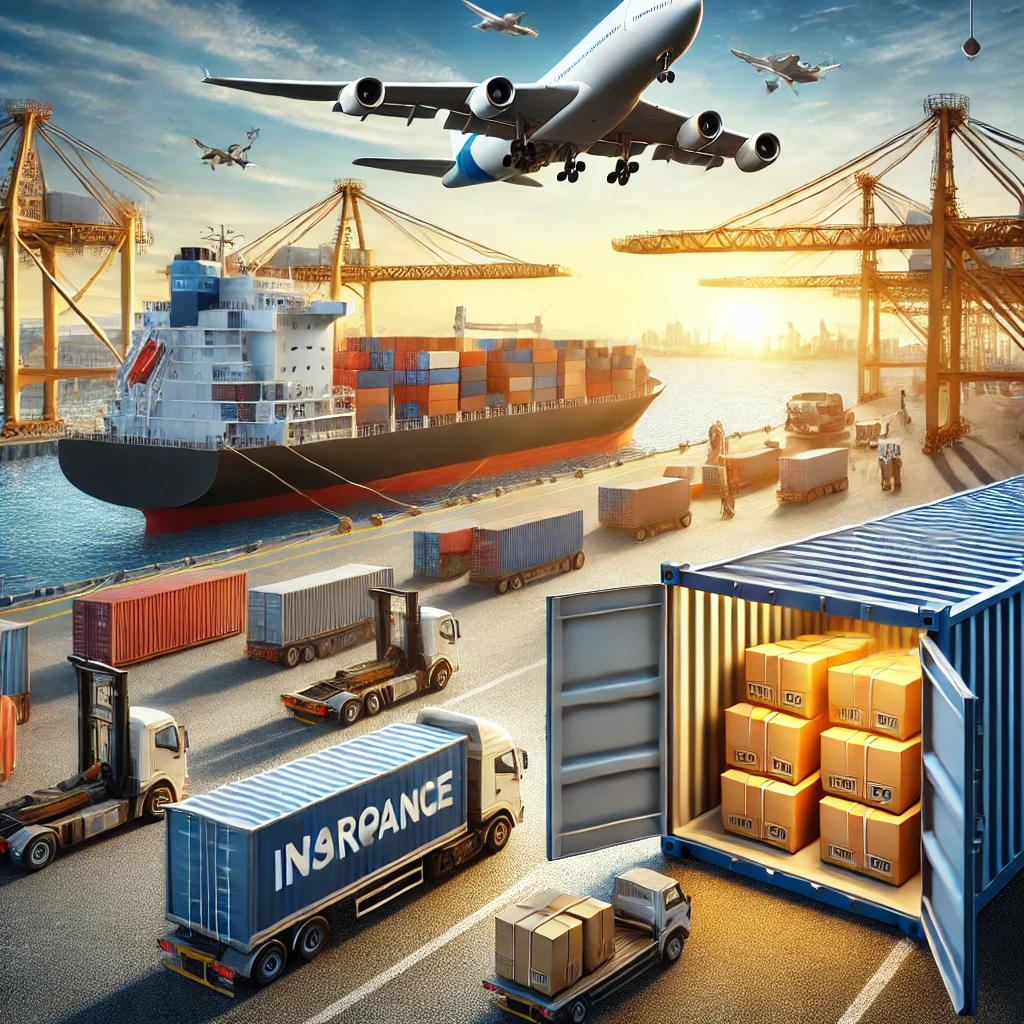Understanding Cargo Insurance: Why It's Essential for Your Shipments

What is Cargo Insurance?
Cargo insurance is a type of coverage that protects goods in transit against loss, damage, or theft. It applies to shipments transported by sea, air, rail, or road, providing financial protection against various risks encountered during the shipping process.
Why is Cargo Insurance Essential?
- Protection Against Financial Loss: Covers the value of goods if they’re damaged, lost, or stolen during transit.
- Peace of Mind: Allows shippers to focus on their core business without worrying about potential shipping mishaps.
- Compliance: Many countries require cargo insurance for certain types of goods or shipment values.
- Customer Satisfaction: Ensures quick resolution and replacement of damaged goods, maintaining good customer relations.
- Risk Management: Helps businesses manage the inherent risks in international trade and logistics.
Types of Cargo Insurance

- All-Risk Coverage: Provides the broadest protection, covering most causes of loss or damage.
- Named Perils Coverage: Covers only specific risks listed in the policy.
- General Average Insurance: Protects against shared losses in maritime shipments.
- Contingency Insurance: Covers situations where the primary insurance fails to pay.
What Does Cargo Insurance Typically Cover?
- Physical damage to goods during transit
- Theft or pilferage
- Natural disasters affecting the shipment
- General Average declarations
- War, strikes, riots (with additional clauses)
What's Usually Not Covered?
- Inherent vice (natural deterioration of goods)
- Inadequate packaging
- Delays in transit
- Rejection of goods by customs
- Financial default of the buyer

Factors Affecting Cargo Insurance Premiums
- Type and value of goods
- Mode of transport
- Shipping route and destination
- Packaging quality
- Claims history of the shipper
- Level of coverage selected
How to Choose the Right Cargo Insurance
- Assess Your Needs: Consider the value of your goods, shipping frequency, and risk tolerance.
- Understand Policy Terms: Carefully read and understand what is and isn’t covered.
- Compare Providers: Look at coverage options, premiums, and claim settlement processes.
- Consider Deductibles: Higher deductibles can lower premiums but increase out-of-pocket expenses in case of a claim.
- Check for Specialization: Some insurers specialize in specific types of cargo or routes.

Best Practices for Managing Cargo Insurance
- Accurate Valuation: Ensure your goods are insured for their full value.
- Proper Documentation: Maintain detailed records of shipments and insurance policies.
- Regular Policy Review: Periodically review and update your coverage as your business needs change.
- Risk Mitigation: Implement best practices in packaging and handling to reduce the likelihood of claims.
- Prompt Claim Filing: In case of loss or damage, file claims promptly and provide all necessary documentation.

The Claims Process
- Notify the Insurer: Inform your insurance provider as soon as you’re aware of a loss.
- Document the Damage: Take photos and gather all relevant shipping documents.
- File the Claim: Submit a formal claim with all required documentation.
- Survey and Assessment: The insurer may appoint a surveyor to assess the damage.
- Claim Settlement: Once approved, the insurer will settle the claim according to the policy terms.
Conclusion
Cargo insurance is an indispensable tool for managing risks in international trade and logistics. By understanding its importance, types, and best practices, businesses can protect their financial interests and ensure smooth operations even in the face of unforeseen events during shipping.
For freight forwarders and logistics companies looking to streamline their cargo insurance management, Linbis offers robust software solutions. Our platform can help you track insurance coverage, manage claims, and integrate insurance data with your overall logistics operations. To learn more about how Linbis can enhance your cargo insurance management, contact us today for a personalized demonstration.
